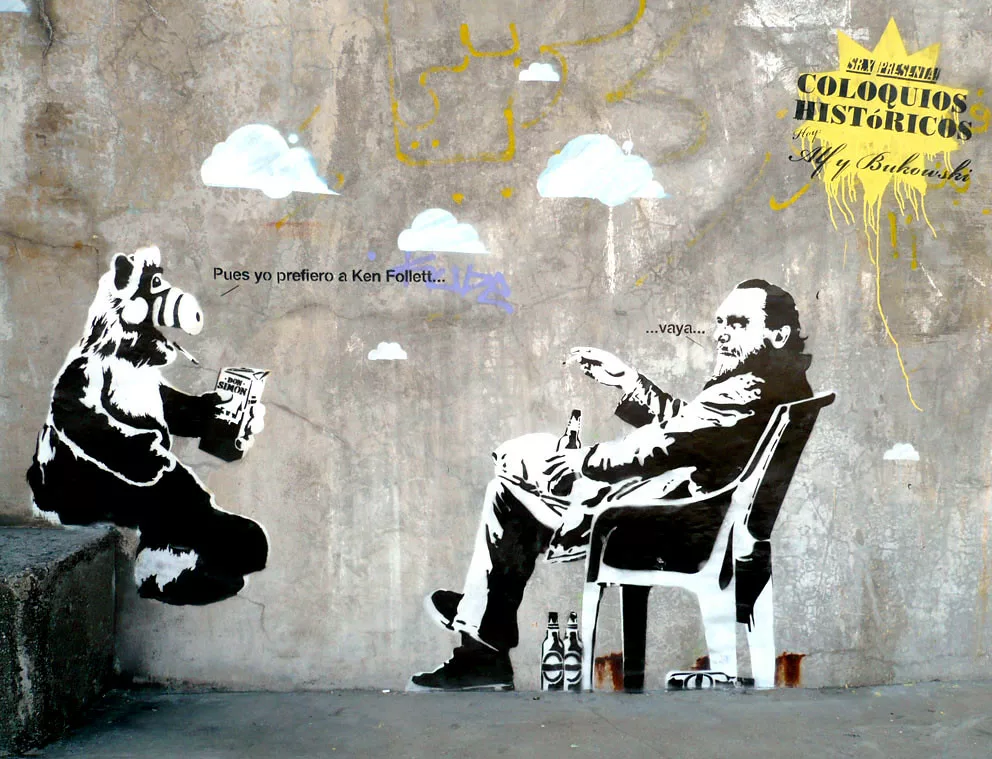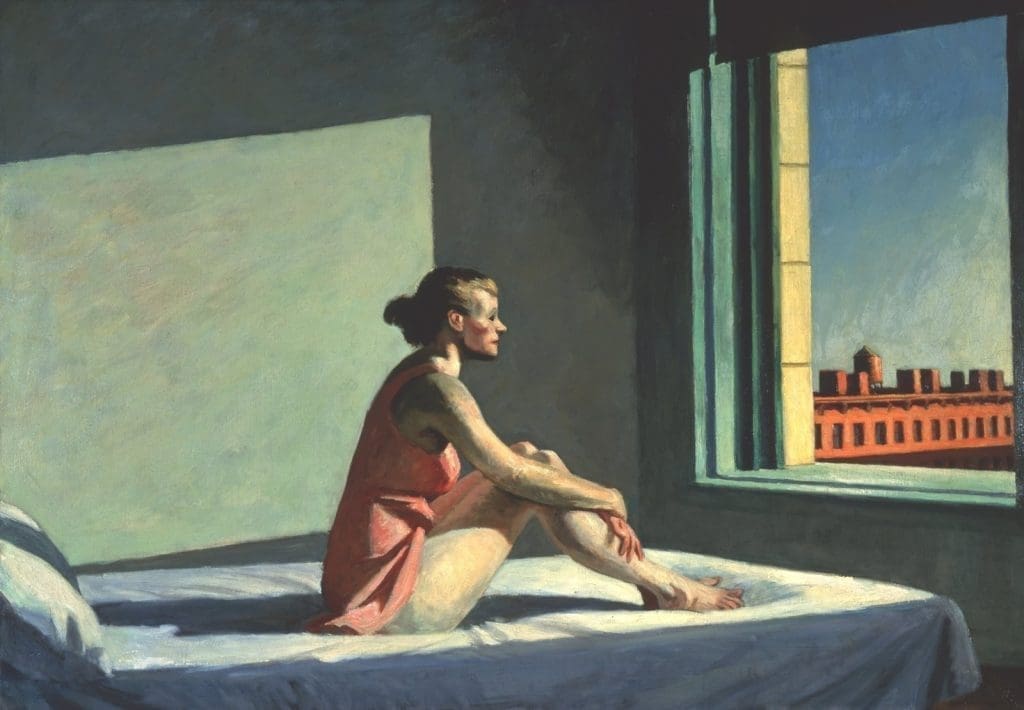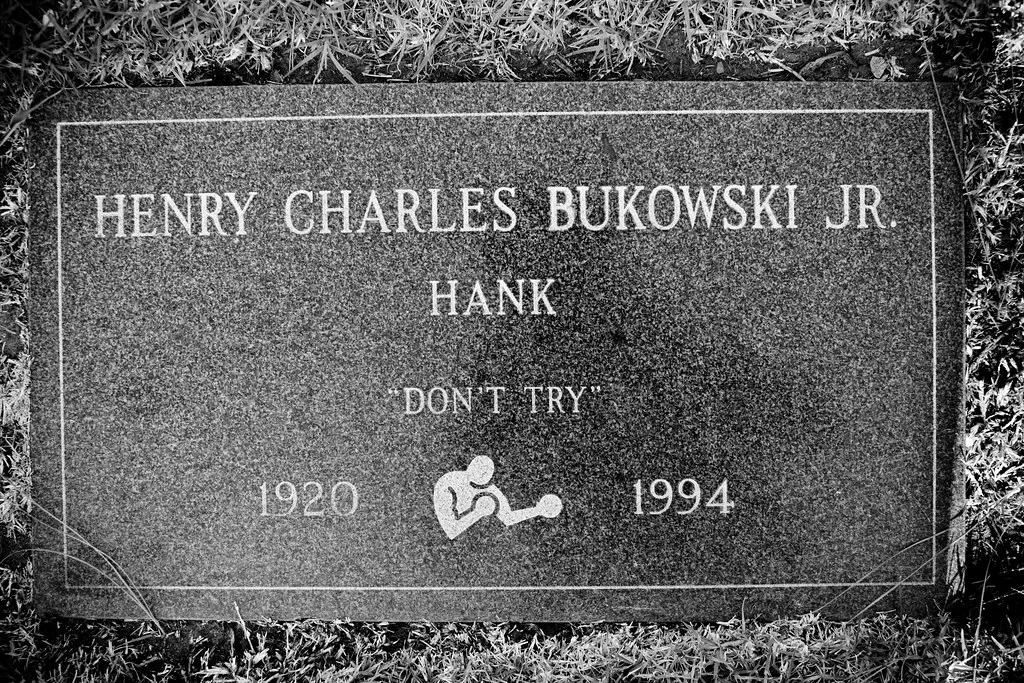When people talk about Charles Bukowski (1920 – 1944), the most disparate ideas often come to mind: that he was a crude, uncultured man, devoted only to consuming himself in vices or, perhaps, that he was some “cursed poet” (a fact, by the way, that is historically nonsensical). The reality is quite different: Bukowski was a great writer and author of countless poems and cultivated a noble spirit, capable of appreciating the slightest nuances of life.
Contrary to what is often assumed, his literary approach does not seek rhetorical alterations or embellishments of any kind. He narrates and follows the path traced by realistic writers such as Verga. To borrow a phrase from the composer Schoenberg, if art is to describe reality in some way and the latter is ugly, art must know how to find ugliness within an aesthetically beautiful expression.
Bukowski does precisely that. Born in Germany and emigrated to California, he finds himself in an environment that, while open to different cultures, remains reluctant toward the less affluent. The power of extreme capitalism is ruthless: the pursuit of happiness, even if possible, almost always has to come from the gutter, even from the sewage drains. This is the reality that the young Bukowski experiences and makes his own. He observes, day after day, the absurdity of an existence that seems devoid of any natural logic.
In this poor, rough environment, full of people who, like him, can only seek the satisfaction of easy loves and the liberating power of alcohol fumes, he sets his famous poetic collection “Love is a dog from hell,” a kind of diary containing the most intimate and, at the same time, spontaneous confessions of a man without means in the desolation of the California suburbs.
...
and they can't believe
that I can't help them
that I don't know the words.
...
I don't write out of
knowledge.
when the phone rings
I too would like to hear words
that might ease
some of this.
that's why my number's
listed.
These lines, taken from the poem “462-0614” (his phone number), seem to recall Montale’s evil of living and its refusal to communicate any “…formula what worlds it can open up for you…” Because even the most seemingly benign fate, literary success (decidedly modest, compared to today’s writers), is by no means medicine capable of alleviating existential pain and loneliness and guiding toward a meaning that can fulfill every desire.
Almost tenderly, Bukowski admits that he needs help, perhaps even more than those who admire him and read his poems and stories in the shade of a palm tree in the sunny mansions of Santa Monica or Beverly Hills. The cliché that success fulfills every inner need is one of the byproducts of the mass commodification that has seen the writer land on American soil.
And precisely in the context of this commodification, even love becomes a consumer good, a consumerist trap driven by aggressive marketing that wants to shape demand and impose desires and cravings. Degradation, in addition to physical degradation, is also stretched by billboards toward the psyche of people who, unable to achieve economic prosperity, can always find “refuge” in alternatives accessible to most.
you've got to fuck a great many women
beatiful women
and write a few decent love poems.
and don't worry about age
and/or freshly-arrived talents.
just drink more beer
more and more beer
and attend the racetrack at least once a
week
and win
if possible.
...
These lines, taken from “how to be a great writer,” however rough, cold, and devoid of any rhetorical research, admirably describe the existential condition of both Bukowski and every other human being who, like him, would like to express his interiority. All this might seem strange, almost absurd, because the average well-wisher would respond, “Study! Read!” but real life needs institutionalized education. Still, it also requires contact with the ground, dust, and the tiles of public toilets impregnated with the smell of urine.
In this realism taken to the extreme, the recipe for apparent lower-middle-class prosperity is based on sex that neither satisfies nor extinguishes pleasure, booze with cheap beer, and the pursuit of fortune bestowed like coins thrown on a crowd from a plane in flight. All three of these “tools” have the characteristic of improbability hidden within possibility.

It is rare to find a woman of ease who can fill the life of a bored man, but it is easy enough to pick up another wretch (perhaps right at a bar counter) or pay a prostitute. It is, moreover, well known that the pleasure of intoxication is short-lived and leaves a much more prolonged after-effect of nausea. All forms of gambling or betting are based on the principle of the defeat of the most for the benefit of the few able to bear the risk of the bets.
Bukowski’s literary style seems spontaneously shaped precisely by this existential condition. I doubt that he, a lover of Brahms and Céline, in a sense opposed to the beat generation, deliberately chose a path not pleasant to him to bend to the market’s demands. The alterations and failures he recounted can only disprove this hypothesis and support the thesis that his style emerges as the fruit of the full realization of an “essentially miserable” life.
...
Van Gogh's ear rejected by a
whore;
Rimbaud running off to Africa
to look for gold and finding
an incurable case of syphilis;
Beethoven gone deaf;
...
Confirmation of Bukowski’s spontaneity comes precisely from the poem “what they want,” which, almost like a financial analysis based on bulleted lists, is composed of “striking cases,” portraits of the strangeness of artists, that is, simple natural cases that, in a reality where being normal is synonymous with banality, become calling cards for access to success (posthumously, of course).
Such is the fate of couple love as well: no longer the spontaneous fruit of a chance encounter or the maturation of an acquaintance, but rather the frustrating realization that the hasty, meaningless sexual relationship is quickly consumed, and so are the lives of the two partners, which inevitably return to its harrowing regularity:
...
the girls ignore
the traffic.
the are half
asleep in the afternoon
they are whores
they are whores without
souls
and they are magic
because they lie
about nothing.
...
(verses from "the girls at the green hotel")
What might seem like contempt is instead genuine compassion, that is, “passion together.” It is the realization that there is no prostitute without the client, and there is no client without an existential reality capable of overwhelming any effort of will. The city is one; the state is one, the nation is one, and the world is one: only inappellable equality of fate holds the strings that move the puppets. And those who, perhaps wealthier and more affluent, think they are excluded from this “popular” status often end up falling into luxury traps built especially for those with six-figure bank accounts.

In conclusion, I think Bukowski’s poetry represents one of the most successful attempts to transpose late nineteenth-century realism to the present day, transforming it into what is often referred to as “stark realism,” that is, a representation of the most miserable reality through a stream of incomplete thoughts, without filter or artifice.
There is no scandal in Bukowski’s poetry unless one is like Prince Siddhartha, who, having grown up sheltered from all influence of the famous world, suddenly discovers the existence of poverty and degradation. But if the prince’s castle was large and cozy, the world outside was infinitely more expansive and varied.
Thus, if respectability finds solace among adorned walls and dialogue cleansed of all filth, realism lives in the universe of streets, bars, betting parlors, and cockroach-filled motels in the immensely vast complement that man is forced to populate. Bukowski’s language, his poetry, and his very being are the language, poetry, and being of that exterminated macrocosm that contains within itself, like little boils, the pristine but far more putrid havens of the well-meaning moralists.
Short biography of Charles Bukowski
Charles Bukowski is widely known for his raw and unapologetic writing style that blurs the line between fiction and reality. Born in Andernach, Germany, in 1920, Bukowski’s works often reflect his experiences with a touch of dark humor and stark realism. His poetry and fictional works delve into the complexities of the human condition, exploring the themes of alcoholism, poverty, and the struggles of everyday life.
Bukowski’s unique style is characterized by his directness and lack of pretense, drawing readers into the raw world he portrays with vivid imagery and blunt language. His poems often touch on themes of love, loneliness, and the mundane aspects of urban life, creating a sense of intimacy and honesty that resonates with many.

Despite facing numerous rejections early in his career, Bukowski persevered and eventually gained recognition for his work, becoming a prolific writer with a devoted following. His legacy endures, influencing generations of writers with his distinctive voice and relentless portrayal of the human experience.
If you like this post, you can always donate to support my activity! One coffee is enough!


